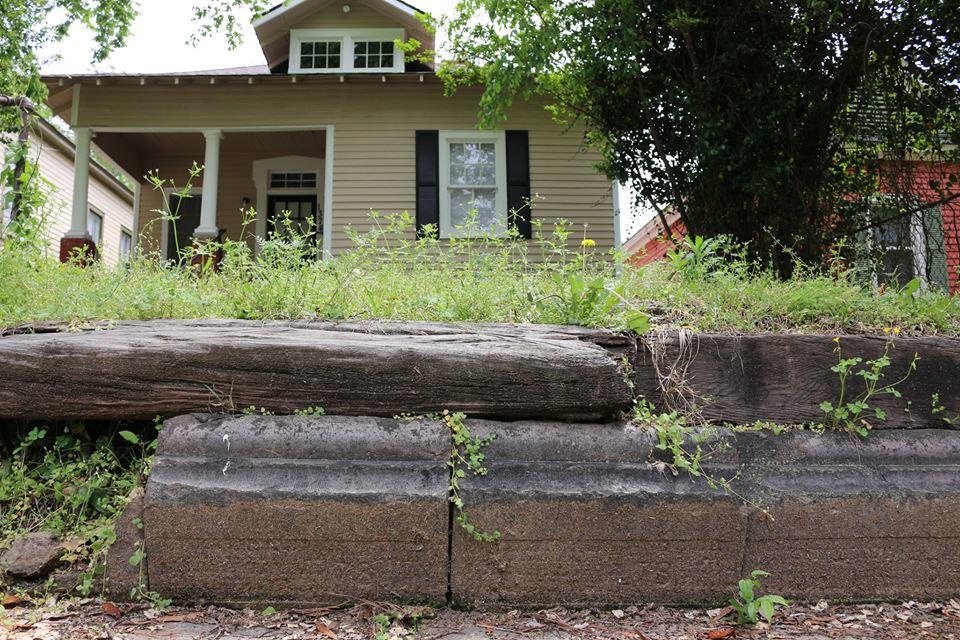
Section Branding
Header Content
Pieces Of Macon's Civil War History Are Literally In The Walls
Primary Content

Between GPB's new "37 Weeks" series about Sherman's March and Saturday’s second annual Cannonball House trolley tour, Macon has Civil War Sesquicentennial fever.
Earl Colvin, executive director of the Cannonball House, gave me the short version of his driving tour of Macon's Civil War sites. While some of the landmarks he points out are well known, others are seldom seen, but right under our noses.
“We have the blessing of having a city which was not destroyed completely during the war,” Colvin said as we set out from the Cannonball House, itself an antebellum landmark.
First stop was the 1842 Inn on College Street, once the home of Judge J. G. Gresham. His son Wiley was an invalid who kept a fastidious diary during the war that is currently on display at the Library of Congress in Washington.
“He describes, very definitely, the actions…and excitement that took place around Macon,” Colvin said. “Because after Atlanta fell, there was this horrible fear that the next place would be Macon, because of all of its industrial prowess.”
Macon was home to two major national Confederate industrial institutions — the Confederate Armory and the Confederate Laboratory.
Stop two on Colvin’s tour was actually post-war in origin — the old Appleton School on College Street, opened in 1868 by William Appleton of New York City to serve Macon’s war orphans. The building is now the parish house for St. Paul’s Episcopal Church.
“There were almost 500 widows and nearly a thousand children without fathers at the end of the war just here in Macon alone,” Colvin said. Many of those children also lost their mothers. “It’s just so unique for somebody to see that need, of course it had to be really evident back then.”
Last stop on the tour was on the back side of Beall’s Hill behind the Mercer University campus, where the massive, 10-acre Confederate Armory once stood.
The building’s roof system failed and it was demolished shortly after the war, Colvin said, but people salvaged stone pieces from the building and integrated them into their houses, fences, and retaining walls.
“Throughout this neighborhood, if you drive through and look very closely you’ll see some very ornate granite pieces, some that have rosettes cuts into them and things like that,” Colvin said.
“It’s so hard to imagine that what once was an armory is now housing for college students,” he said. “You don’t think about the transition in time and space, and all that’s gone on over here over the past 150 years.”
The full trolley tour of Macon’s Civil War sites leaves the Cannonball House at 11 a.m. and 1 p.m. Saturday. To make a reservation, call (478) 745-5982.
Tags: Civil War, Adam Ragusea, Cannonball House, Civil War Sesquicentennial
Bottom Content
